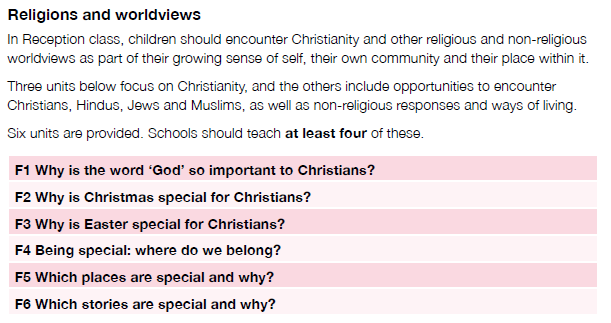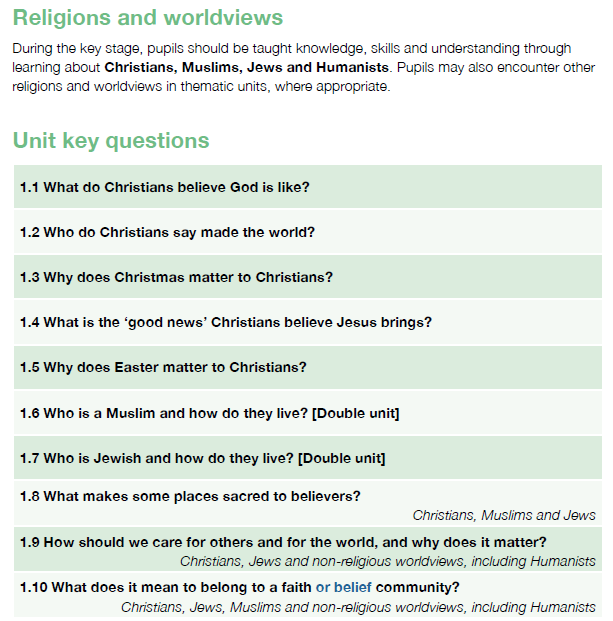RE
Our Key Stage 1 children learn about a range of religions and world views by asking questions, investigating, reflecting, debating and researching. RE is taught through the Devon and Torbay Agreed Syllabus 2019–2024.
The aims of the RE Curriculum are that all pupils;
- know about and understand a range of religions and world views
- express ideas and insights about the nature, significance and impact of religions and world views
- gain and deploy the skills needed to engage seriously with religions and world views
Learning in RE is creative and engaging, children participate in speaking and listening and drama activities and produce creative outcomes.
Assemblies also support our teaching and learning of RE. Assembly themes are linked to British values and celebrate religious festivals.
EYFS

Key Stage 1

Key Stage 2 RE
In September 2023 Holbeton Primary School adopted a new RE curriculum 'Opening Worlds', which starts in Year 3 and then will be rolled out in the subsequent years until it is implemented from Year 3 through to Year 6.
Opening Worlds is a knowledge-rich humanities programme for teaching history, geography and religion in Years 3 to 6. As a school, we are provided with curriculum resources together with training, support and ongoing programme-related professional development for our school teachers.
The Opening Worlds programme was first launched in 2019 by Christine Counsell and Steve Mastin, in association with Haringey Education Partnership (HEP) where over 60 primary schools took it up.
The programme meets and substantially exceeds the demand of the National Curriculum for history and geography. It is compatible with the SACRE locally agreed syllabi in RE. The programme is characterised by strong vertical sequencing within subjects (so that pupils gain security in a rich, broad vocabulary through systematic introduction, sustained practice and deliberate revisiting) and intricate horizontal and diagonal connections, thus creating a curriculum whose effects are far greater than the sum of its parts.
https://openingworlds.uk/what-is-opening-worlds/
The Structure of the curriculum:
This approach has a coherent, chronological and rigorous structure that ensures that links are not only made across individual subjects but also across each of the topics covered. This means that knowledge is gradually and successfully built upon and children make explicit links using their previous knowledge. This is consistently revisited and retrieved. Below, the coverage of each humanities subject
| History | Geography | RE | |
| Year 3 | |||
| Autumn Term |
|
|
|
| Spring Term |
|
|
|
| Summer Term |
|
|
|
| Year 4 | |||
| Autumn Term |
|
|
|
| Spring Term |
|
|
|
| Summer Term |
|
|
|
| History | Geography | RE | |
|
Year 5 |
|||
| Autumn Term |
|
|
|
| Spring Term |
|
|
|
| Summer Term |
|
|
|
| Year 6 | |||
| Autumn Term |
|
|
|
| Spring Term |
|
|
|
| Summer Term |
|
|
|




